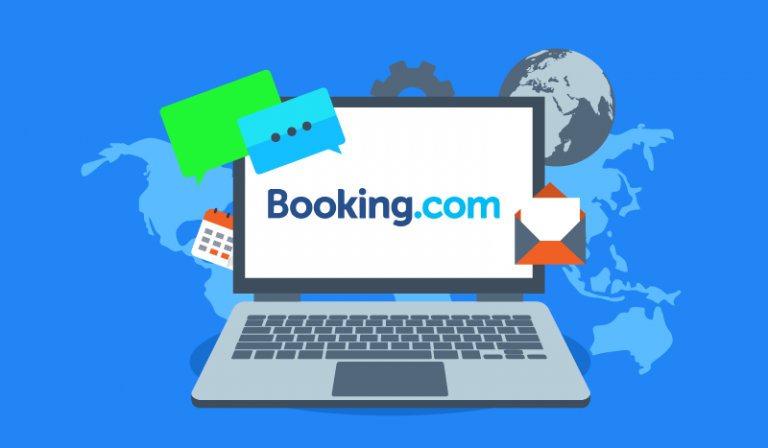Unlocking the Potential of Business Travel and Expense Management through Booking.com
Embarking on a successful business trip can provide your company with invaluable insights, strengthened relationships, and much more. However, it’s essential to be mindful of the associated expenses. Fortunately, by implementing effective planning, organization, and transparent communication, you can optimize your business’s travel expense process to save both time and money.
What You’ll Find in This Comprehensive Guide:
- Understanding Business Travel Expenses
- Navigating the Realm of Travel and Expense Management
- Efficiently Managing the Travel and Expense Process
- Streamlining Business Travel Expense Tracking
- Establishing Practical Expense Limits
- Strategies to Reduce Business Travel Expenses
- Best Practices for Effectively Managing Business Travel Expenses
Discover the key strategies and practical insights to master the art of business travel and expense management, empowering your company to make the most out of every corporate journey.

Understanding Business Travel Expenses
Business travel expenses encompass the various costs incurred during a business trip, specifically the expenses related to products and services necessary to accomplish the trip’s objectives. Generally, expenses that are essential for meeting basic needs or facilitating job-related tasks while abroad can be claimed by business travelers. It is crucial for everyone in your organization to have a clear understanding of what qualifies as these subsistence expenses, as they can have tax implications.
The most common types of business travel expenses include:
- Airfare
- Accommodation
- Food
- Car rentals
- Fuel for rental cars or personal vehicles
- Mileage allowance when using a personal vehicle for business purposes
- Parking fees and road tolls
- Public transportation
- Costs associated with entertaining clients, prospects, and partners
- Other miscellaneous business costs, such as printing materials for a tradeshow booth, props for a photoshoot, or renting technology for a presentation.
While there is a wide range of expenses that are eligible for reimbursement, it’s important to note that there are also certain limitations. Business travel expenses typically do not cover expenses related to commuting to a local office, clothing for trips, or personal entertainment costs while traveling for work.

Understanding Travel and Expense Management
Travel and expense management involves the process of establishing travel policies, ensuring employees maintain records while traveling, and submitting reports accurately upon their return from a trip. It plays a crucial role in providing clarity to employees, finding cost savings in corporate travel, and ensuring precise accounting.
In smaller businesses, these responsibilities may fall under various departments such as the Legal Team, HR, or office managers, or they may be outsourced to a travel management company. Larger companies often have a dedicated corporate travel manager who oversees travel planning, establishes and enforces travel policies, and manages budgets and expenses.
Regardless of the company size, business travelers themselves also have an important role to play. They are responsible for understanding and adhering to the travel policy, maintaining records of their expenses, and submitting claims in a timely manner.
How to Manage the Travel and Expense Process
Every company should have a travel and expense policy that includes expense management guidelines to ensure employees understand how to submit expense claims, which expenses are permissible, and what to expect during the reimbursement process.
There are several approaches to managing corporate travel and expenses, each with its own benefits and challenges:
- Self-payment and reimbursement: Business travelers book and pay for all expenses themselves and are reimbursed later.Benefits: Travelers have the flexibility to make decisions and changes on the go. This approach requires minimal investment or infrastructure to set up. Challenges: Travelers must wait for reimbursement, which can be challenging depending on their financial situation. There is also a significant administrative burden on business travelers to track and document all expenses.
- Corporate travel card: Business travelers book and pay for expenses using a corporate travel card.Benefits: Having all expenses on one card simplifies the process and eliminates the temporary financial burden on employees. Choosing the right corporate credit card can also provide rewards. Challenges: Businesses must trust employees to use corporate cards appropriately. When multiple individuals share a physical corporate card, separating expenses and preparing claims can be challenging. Additionally, there is a risk of loss or theft of the physical credit card.
- Business travel platform: Business travelers, travel managers, or administrative support book and pay for expenses through a business travel platform.Benefits: This approach offers flexibility in terms of who can book travel and the available options. The right platform can help enforce the travel policy and provide transparency across the organization. Challenges: Travel management platforms typically cover flight, accommodation, and possibly transportation bookings, requiring the use of corporate cards or reimbursement for other expenses incurred during the trip.
By implementing effective travel and expense management strategies, companies can streamline processes, ensure compliance with policies, and optimize cost savings for corporate travel.
How to Effectively Track Business Travel Expenses
Tracking business travel expenses and submitting claims can be optimized by considering the preferences of business travelers and aligning with your corporate travel policy. To ensure success, your expense tracking process should encompass the following:
- Expense Management Tool:
Utilize a dedicated spend management app or software to streamline processes. Look for features such as receipt scanning, mileage tracking, and approval workflows to enhance efficiency.
- Organized Records:
Maintain meticulous records of all expenses incurred during business travel. Categorize each expense appropriately for accurate tax filing and gain insights into spending patterns.
- Clear Processes:
Establish transparent guidelines within your travel policy regarding expense tracking expectations, required documentation, and deadlines for submitting expense reports.
Setting Expense Limits
The primary objective shared by business travelers and corporate travel managers is to maximize trip productivity while minimizing travel expenses. When setting expense limits, striking a balance between restrictions and flexibility is crucial. Different individuals have varied routines, dietary needs, preferences, and priorities. Allowing for flexibility empowers business travelers to make choices that enhance their productivity on the road, benefiting everyone involved.
To achieve the right balance, consider the following suggestions for setting policies in key expense categories:
- Food:
Set a daily food allowance and grant business travelers the flexibility to allocate the allowance as per their preferences among breakfast, lunch, dinner, and snacks.
- Accommodation:
Define parameters regarding room type, hotel star rating, and/or maximum nightly price, while enabling employees to choose their own hotel within those guidelines.
- Transportation:
Offer clear guidance on selecting cost-effective transportation options, while considering the time lost during travel. For instance, it may be worth paying a bit more for a direct flight to avoid wasting an entire workday on multiple layovers.
By implementing thoughtful expense tracking and setting reasonable expense limits, businesses can strike a balance between cost control and empowering business travelers to optimize their productivity during trips.
Strategies for Reducing Business Travel Expenses
When it comes to keeping business travel expenses low, there are various tips and techniques to consider. Here are some effective ways to start reducing your business expenses:
- Plan Ahead:
Avoid last-minute bookings and take the time to plan ahead. If your company frequently attends conferences or maintains regular client interactions, booking flights and accommodations in advance can help secure better deals.
- Maintain Booking Flexibility:
Sometimes it’s worth paying a little extra for flexibility. Circumstances can change rapidly, so opting for flights and accommodations with flexible change or cancellation policies can save you money in the long run. Seek out cancellable and refundable bookings for ultimate flexibility.
- Consider Accommodation Amenities:
When selecting hotels or other accommodations, pay attention to the amenities offered. For business trips, essential amenities include free WiFi. Look for additional cost-saving amenities such as complimentary breakfast, access to meeting or conference rooms, and free parking.
- Leverage Credit Card Perks:
Take advantage of credit card perks specific to business travel. Some business credit cards offer benefits like lower currency exchange fees, cash back incentives, and deals on rental cars, flights, insurance, and airport lounges.
- Utilize Loyalty Programs:
Sticking with a particular hotel chain or airline can yield long-term benefits. Look for special business rates, membership programs, and loyalty programs that offer cost savings for repeated bookings.
Best Practices for Business Travel Expense Management:
The most effective corporate travel expense management strategy is one that is tailored to your organization and team. Engage your employees in regular discussions and feedback to create an expense management process that aligns with your unique business needs. Here are a few general best practices applicable to all organizations:
- Embrace Technology for Organization:
Utilize travel and expense software solutions to streamline the process of submitting claims and staying organized. Encourage employees to capture photos of receipts and invoices on the go and upload them to shared folders. This practice prevents lost receipts and saves time when creating expense claims.
- Set Clear Deadlines:
Establish clear deadlines for expense report submissions to avoid administrative tasks piling up. Communicate these deadlines effectively to ensure employees understand when they need to submit their reports for reimbursement.
- Adjust Budgets Based on Location:
Costs can vary significantly even within the same country. Set realistic business travel budgets and consider tailoring expense limits to specific locations. Regularly review your travel policy to ensure your budget accounts for inflation and local fluctuations in popular travel destinations.
- Communicate Travel Policy Effectively:
Make your travel policy easily understandable for everyone in your organization. Keep the language simple and eliminate ambiguity regarding eligible expenses. Once your policy is established, develop a plan to effectively communicate it to the entire organization and provide regular reminders to keep the information fresh.
Administrative tasks like travel and expense management often take a backseat during busy periods. However, with proper planning, organization, and communication, these tasks can be streamlined. A clear expense management strategy not only improves administrative and financial efficiency but also reduces confusion and anxiety, allowing your team to focus on achieving the goals of their business trips.


